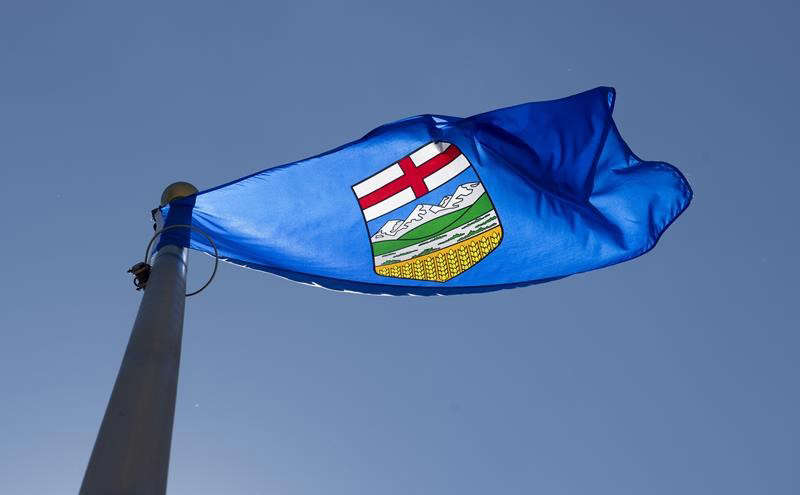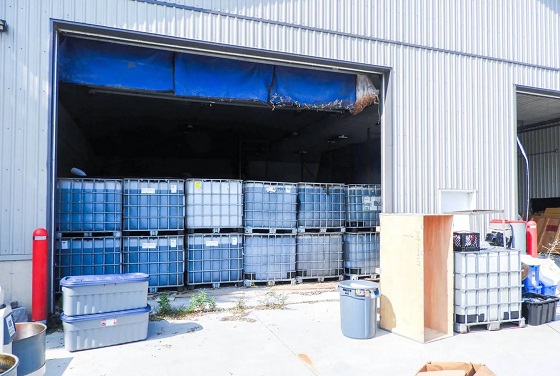Alberta
Province reminding Albertans to apply for Affordability Payments and watch out for scammers

Protect yourself from scammers
Albertans should use caution if they receive a text message claiming to be from government about affordability payments.
Alberta’s government has received reports of text messages attempting to defraud unsuspecting Albertans, including seniors and families who may be eligible for targeted relief payments. In one scam text, people are asked to click on a link to register for automatic bank payments.
The Government of Alberta will never text you or make unsolicited calls to ask you for your personal information.
“Under no circumstance would Alberta’s government send emails or texts requesting information for the affordability program. Users should never click on links or provide personal or banking information to text messages or emails.”
A secure, online application portal for affordability payments was launched by the government on Jan. 18. Families with household incomes below $180,000 are eligible to receive $100 per month for six months for each dependent child under 18. Seniors 65 or older who have household incomes below $180,000 and do not receive the Alberta Seniors Benefit can also apply for monthly payments.
Anyone who cannot apply online can apply in person through any registry agent or Alberta Supports Centre.
Albertans who receive benefits through Assured Income for the Severely Handicapped (AISH), Income Support or the Alberta Seniors Benefit, or services through the Persons with Developmental Disabilities (PDD) program, are already registered for the program and will automatically receive payments.
Quick facts
- Albertans are encouraged to apply for or check the status of their Affordability Payments by logging on to the portal.
- If you are ever uncertain or think you’ve been the target of a phishing scam, report concerns to the police and to the Canadian Anti-Fraud Centre online or by calling 1-888-495-8501.
- Tip sheets and other resources to prevent identity theft and consumer-related scams can be found on alberta.ca on the Consumer and Business tips page.
- For help with affordability payment applications, Albertans can:
- Call the verified account support line at 1-844-643-2789.
- Call the Affordability Action Plan Information Line at 1-844-644-9955.
- Visit any registry agent or Alberta Supports Centre in person to receive support in 50 locations and in more than 100 languages at no charge. During the application period, Alberta Supports is providing extended hours from 4:30 p.m. to 8 p.m. Monday to Friday, and from 9 a.m. to 3 p.m. on Saturdays.
- As with all online accounts, Albertans should use strong passwords and not share their password with anyone else. Tips on how to create a strong password are available on the application site.
- Additional information, including a how-to video and answers to questions, is available online.
Alberta
Coutts border officers seize 77 KG of cocaine in commercial truck entering Canada – Street value of $7 Million

News release from RCMP Federal Policing Northwest Region
Calgary resident charged with attempted drug importation
Canada Border Services Agency (CBSA) officers at the Coutts port of entry found nearly 77 kg of cocaine with an estimated street value of $7 million during a secondary examination of a commercial truck seeking entry into Canada from the United States. The CBSA arrested the driver, a resident of Calgary.
The Integrated Border Enforcement Team in Alberta, a joint force operation between the RCMP Federal Policing Northwest Region, CBSA and Calgary Police Service, was notified and a criminal investigation was initiated into the individual.
Surj Singh Salaria (28), a resident of Calgary, was arrested and charged with:
- Importation of a controlled substance contrary to section 6(1) of the Controlled Drugs and Substances Act;
- Possession of a controlled substance for the purpose of trafficking contrary to section 5(2) of the Controlled Drugs and Substances Act; and,
- Attempting to export goods that are prohibited, controlled or regulated contrary to section 160 of the Customs Act.
Salaria is scheduled to appear in Lethbridge Provincial Court on Oct. 27, 2025.
“The CBSA remains vigilant in preventing dangerous drugs from reaching our communities. This significant seizure shows CBSA’s detection capabilities and the important role our officers play to stop drug trafficking. We are committed to securing and protecting the border alongside our law enforcement partners.”
- Janalee Bell-Boychuk, Regional Director General, Prairie Region, Canada Border Services Agency
“Through coordinated efforts between law enforcement agencies, a substantial quantity of cocaine was seized before it could reach communities across Alberta. This investigation reinforces the value of a secure border and the vital role that collaboration and intelligence-sharing play in safeguarding the public from the harms of illegal drug trafficking.”
- Supt. Sean Boser, Officer in Charge of Federal Serious and Organized Crime and Border Integrity – Alberta, RCMP Federal Policing Northwest Region
“This investigation highlights the strength of our collaborative efforts through the Integrated Border Enforcement Team. By working together with our law enforcement partners, we are able to disrupt the flow of illegal drugs and protect our communities from the violence and harm associated with organized crime.”
- Acting Supt. Jeff Pennoyer, CPS, Criminal Operations & Intelligence Division
IBET’s mandate is to enhance border integrity and security along the shared border, between designated ports of entry, by identifying, investigating and interdicting persons, organizations and goods that are involved in criminal activities.
Alberta
B.C. would benefit from new pipeline but bad policy stands in the way

From the Fraser Institute
By Julio Mejía and Elmira Aliakbari
Bill C-69 (a.k.a. the “no pipelines act”) has added massive uncertainty to the project approval process, requiring proponents to meet vague criteria that go far beyond any sensible environmental concerns—for example, assessing any project’s impact on the “intersection of sex and gender with other identity factors.”
In case you haven’t heard, the Alberta government plans to submit a proposal to the federal government to build an oil pipeline from Alberta to British Columbia’s north coast.
But B.C. Premier Eby dismissed the idea, calling it a project imported from U.S. politics and pursued “at the expense of British Columbia and Canada’s economy.” He’s simply wrong. A new pipeline wouldn’t come at the expense of B.C. or Canada’s economy—it would strengthen both. In fact, particularly during the age of Trump, provinces should seek greater cooperation and avoid erecting policy barriers that discourage private investment and restrict trade and market access.
The United States remains the main destination for Canada’s leading exports, oil and natural gas. In 2024, nearly 96 per cent of oil exports and virtually all natural gas exports went to our southern neighbour. In light of President Trump’s tariffs on Canadian energy and other goods, it’s long past time to diversify our trade and find new export markets.
Given that most of Canada’s oil and gas is landlocked in the Prairies, pipelines to coastal terminals are the only realistic way to reach overseas markets. After the completion of the Trans Mountain Pipeline Expansion (TMX) project in May 2024, which transports crude oil from Alberta to B.C. and opened access to Asian markets, exports to non-U.S. destinations increased by almost 60 per cent. This new global reach strengthens Canada’s leverage in trade negotiations with Washington, as it enables Canada to sell its energy to markets beyond the U.S.
Yet trade is just one piece of the broader economic impact. In its first year of operation, the TMX expansion generated $13.6 billion in additional revenue for the economy, including $2.0 billion in extra tax revenues for the federal government. By 2043, TMX operations will contribute a projected $9.2 billion to Canada’s economic output, $3.7 billion in wages, and support the equivalent of more than 36,000 fulltime jobs. And B.C. stands to gain the most, with $4.3 billion added to its economic output, nearly $1 billion in wages, and close to 9,000 new jobs. With all due respect to Premier Eby, this is good news for B.C. workers and the provincial economy.
In contrast, cancelling pipelines has come at a real cost to B.C. and Canada’s economy. When the Trudeau government scrapped the already-approved Northern Gateway project, Canada lost an opportunity to increase the volume of oil transported from Alberta to B.C. and diversify its trading partners. Meanwhile, according to the Canadian Energy Centre, B.C. lost out on nearly 8,000 jobs a year (or 224,344 jobs in 29 years) and more than $11 billion in provincial revenues from 2019 to 2048 (inflation-adjusted).
Now, with the TMX set to reach full capacity by 2027/28, and Premier Eby opposing Alberta’s pipeline proposal, Canada may miss its chance to export more to global markets amid rising oil demand. And Canadians recognize this opportunity—a recent poll shows that a majority of Canadians (including 56 per cent of British Columbians) support a new oil pipeline from Alberta to B.C.
But, as others have asked, if the economic case is so strong, why has no private company stepped up to build or finance a new pipeline?
Two words—bad policy.
At the federal level, Bill C-48 effectively bans large oil tankers from loading or unloading at ports along B.C.’s northern coast, undermining the case for any new private-sector pipeline. Meanwhile, Bill C-69 (a.k.a. the “no pipelines act”) has added massive uncertainty to the project approval process, requiring proponents to meet vague criteria that go far beyond any sensible environmental concerns—for example, assessing any project’s impact on the “intersection of sex and gender with other identity factors.” And the federal cap on greenhouse gas (GHG) emissions exclusively for the oil and gas sector will inevitably force a reduction in oil and gas production, again making energy projects including pipelines less attractive to investors.
Clearly, policymakers in Canada should help diversify trade, boost economic growth and promote widespread prosperity in B.C., Alberta and beyond. To achieve this goal, they should put politics aside, focus of the benefits to their constituents, and craft regulations that more thoughtfully balance environmental concerns with the need for investment and economic growth.
-

 Business2 days ago
Business2 days agoTrans Mountain executive says it’s time to fix the system, expand access, and think like a nation builder
-

 Energy2 days ago
Energy2 days agoCAPP calls on federal government to reset energy policy before it’s too late
-

 Media1 day ago
Media1 day agoCarney speech highlights how easily newsrooms are played by politicians announcing the same things over and over again
-

 Crime1 day ago
Crime1 day agoRCMP Bust Industrial-Scale Superlab Outside Toronto
-

 Business2 days ago
Business2 days agoCanada is still paying the price for Trudeau’s fiscal delusions
-

 Business2 days ago
Business2 days agoTrump Raises US Tariffs on Canadian Products by 10% after Doug Ford’s $75,000,000 Ad Campaign
-

 Opinion1 day ago
Opinion1 day agoCarry-On Carney And The Trials Of Brian Peckford
-

 Sports20 hours ago
Sports20 hours agoWhile Ohtani marches into MLB history, Nippon league’s shame lingers



